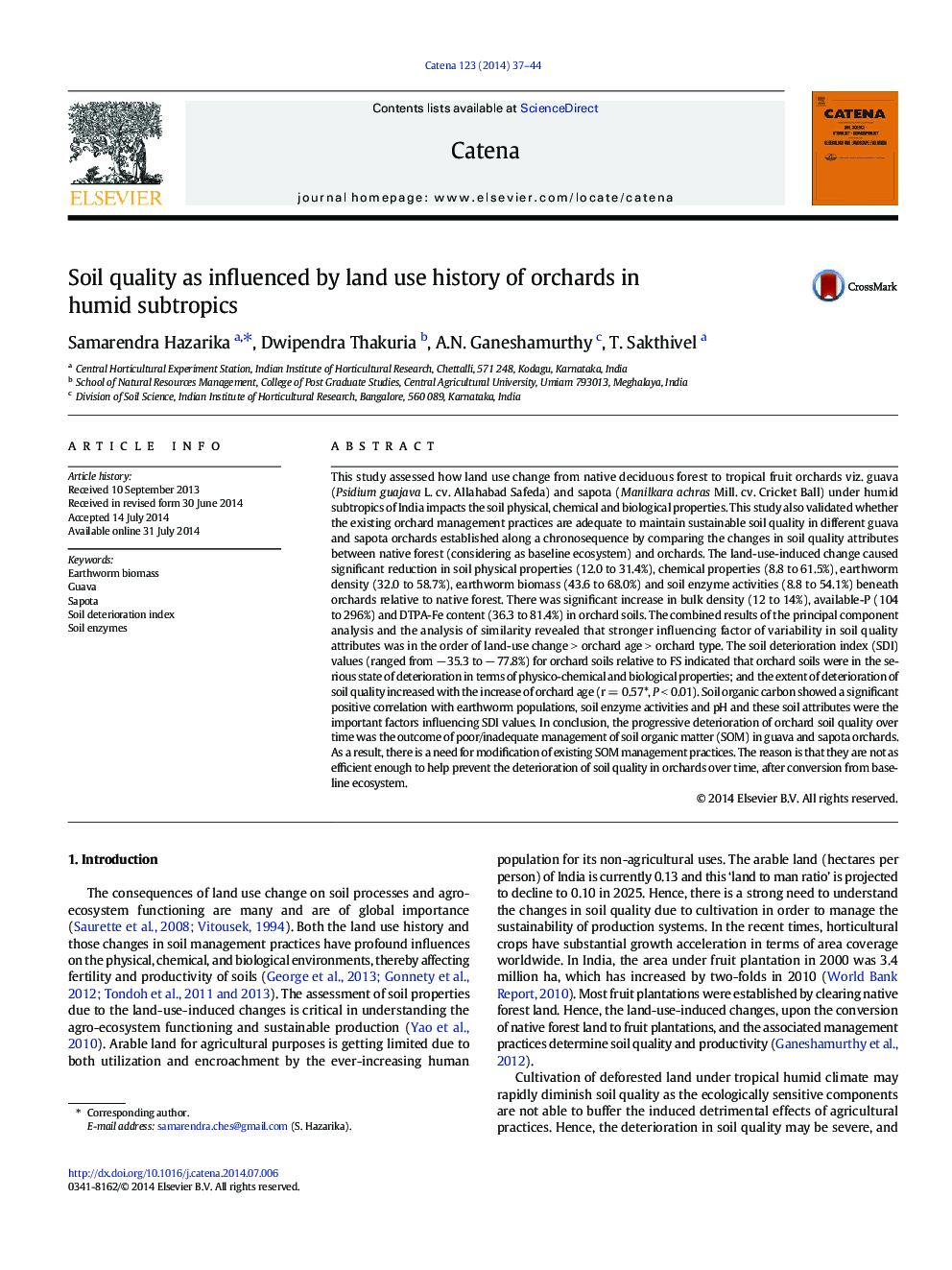| کد مقاله | کد نشریه | سال انتشار | مقاله انگلیسی | نسخه تمام متن |
|---|---|---|---|---|
| 4571338 | 1629229 | 2014 | 8 صفحه PDF | دانلود رایگان |
• Changes in soil quality along a chronosequence of orchards were assessed.
• Conversion of native forest to fruit orchard deteriorated values of soil attributes.
• Values of soil attributes strongly impacted by land-use change than orchard age.
• Values of soil deterioration index increased with the increasing age of orchard.
This study assessed how land use change from native deciduous forest to tropical fruit orchards viz. guava (Psidium guajava L. cv. Allahabad Safeda) and sapota (Manilkara achras Mill. cv. Cricket Ball) under humid subtropics of India impacts the soil physical, chemical and biological properties. This study also validated whether the existing orchard management practices are adequate to maintain sustainable soil quality in different guava and sapota orchards established along a chronosequence by comparing the changes in soil quality attributes between native forest (considering as baseline ecosystem) and orchards. The land-use-induced change caused significant reduction in soil physical properties (12.0 to 31.4%), chemical properties (8.8 to 61.5%), earthworm density (32.0 to 58.7%), earthworm biomass (43.6 to 68.0%) and soil enzyme activities (8.8 to 54.1%) beneath orchards relative to native forest. There was significant increase in bulk density (12 to 14%), available-P (104 to 296%) and DTPA-Fe content (36.3 to 81.4%) in orchard soils. The combined results of the principal component analysis and the analysis of similarity revealed that stronger influencing factor of variability in soil quality attributes was in the order of land-use change > orchard age > orchard type. The soil deterioration index (SDI) values (ranged from − 35.3 to − 77.8%) for orchard soils relative to FS indicated that orchard soils were in the serious state of deterioration in terms of physico-chemical and biological properties; and the extent of deterioration of soil quality increased with the increase of orchard age (r = 0.57*, P < 0.01). Soil organic carbon showed a significant positive correlation with earthworm populations, soil enzyme activities and pH and these soil attributes were the important factors influencing SDI values. In conclusion, the progressive deterioration of orchard soil quality over time was the outcome of poor/inadequate management of soil organic matter (SOM) in guava and sapota orchards. As a result, there is a need for modification of existing SOM management practices. The reason is that they are not as efficient enough to help prevent the deterioration of soil quality in orchards over time, after conversion from baseline ecosystem.
Journal: CATENA - Volume 123, December 2014, Pages 37–44
